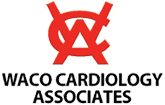Arteriosclerosis refers to stiffening or hardening of the arteries of the body. The term “atherosclerosis” refers to the accumulation of fatty substances on the walls of the artery (plaque). While they are technically different terms, they often are used interchangeably. From a practical viewpoint, most arteries with atherosclerosis have arteriosclerosis and visa versa. Arteries are flexible and elastic in young, healthy people. Over time, things such as high blood pressure put too much pressure on the arteries of the body leading to the artery walls getting thicker and stiffer. This process leads to arteriosclerosis and loss of elasticity of arteries. This can sometimes lead to restriction in blood flow to the organs and tissues of the body. The most common and dreaded complications of hardening and narrowing of the arteries are heart attack and stroke. Build-up of plaque in the coronary arteries, the arteries that supply blood to the heart, can restrict blood flow and oxygen delivery to the heart muscle. This often leads to a symptom called angina. If a coronary artery is completely blocked suddenly, the part of the heart supplied by that artery starts to die due lack of oxygen. This is called a heart attack. If an artery to the brain becomes blocked completely, part of the brain dies and this is called a stroke. Hardening of the arteries can affect the legs (and rarely the arms), this is called peripheral vascular disease. This can cause pain when walking (claudication) and if it is severe enough it can cause loss of a limb. It can cause inadequate blood flow to the kidneys and kidney dysfunction. Sometimes, arteries that become hardened from arteriosclerosis or atherosclerosis, weaken over time usually due to elevated pressure on the artery wall over many years. The largest artery that carries blood from the heart to the rest of the body, the aorta is especially at risk. The weakening of the aorta leads to enlargement and when too large, an aortic aneurysm. Hardening of the arteries is not reversible but the process can be slowed or stabilized by ensuring risk factors are aggressively treated. The most common risk factors that may be reversed are high blood pressure, high cholesterol, diabetes, smoking, and sedentary lifestyle. Genetics, aging and being male are risk factors that cannot be controlled. The risk of the arteries hardening in females catches up to males once a woman reaches menopause.
Caring for the hearts of Central Texas Since 1971
(254) 399-5400

